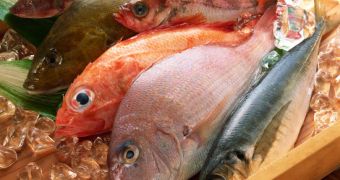The moon might belong to everyone and it may very well be that the best things in life are free, but the seafood consumed by most people in the United States comes with a really impressive price tag.
On January 7, NYC-based non-profit advocacy group Natural Resources Defense Council (NRDC) released a new report saying that, each year, over 650,000 marine mammals are either killed or injured in foreign fisheries around the world.
In its report, the organization details that these animals suffer serious injuries or die after becoming hooked, entangled or trapped in fishing gear, EcoWatch reports.
“No one wants their shrimp cocktail to come with a side of dolphin, but that’s essentially what’s happening when we eat imported fish that isn’t held to the same standard as American seafood,” says report co-author Zak Smith.
The NRDC says that, according to its investigations into the matter at hand, about 91% of the seafood people in the United States consume on a yearly basis is imported.
This might not be a very big deal if it were not for the fact that the fisheries that export this seafood to the country are not exactly environmentally friendly.
On the contrary, the organization maintains that nearly all the wild-caught fish products made available to consumers in the United States must be linked to violations of a federal marine mammal protection law.
The species hit the hardest by seafood exports for American markets are North Atlantic right whales, New Zealand sea lions, Mediterranean sperm whales, vaquitas, spinner dolphins, Baltic and the Black Sea harbor porpoises, J-stock minke whales, and false killer whales, NRDC writes in its report.
In light of these findings, the conservationists urge that high officials in the United States roll out measures intended to ensure that states that send seafood to the country abide by American standards in terms of sustainability.
“Bycatch isn’t just a moral issue, it’s simple economics. Foreign fishing companies can undercut our prices because they don’t have to invest in ensuring that their exports to the U.S. were caught in a manner that protects marine mammals,” stresses Acy Cooper, vice president of the Louisiana Shrimpers Association.
Furthermore, “Until foreign fleets see real consequences for failing to abide by the law, marine mammals will continue to be harmed around the world and American fishermen will be disadvantaged.”
Non-profit group NRDC argues that, until such measures are implemented, consumers can help protect the world's remaining marine mammals by choosing to only purchase American-caught seafood.

 14 DAY TRIAL //
14 DAY TRIAL //